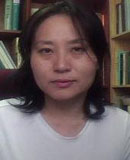 | ||
| Prof. Choi Kyung-ah | ||
I had a chance to mix around with different nationals since I have stayed in another country for sometime. Soon, I came to learn that we Koreans tend to segregate ourselves from others and are very proud of our own nation. We cannot simply say that this is not positive. Overseas Koreans are often praised for their maintenance of national identity. They still indulge in Kimchi and Deonjangjjigae. In fact, one of the difficult problems Koreans face abroad is related to their particular diet. Basic ingredients of these foods are, therefore, supplied from Korea, otherwise they are made from local materials. Sometimes strong smell of these foods causes a commotion in the neighborhood. Some may say, "Why should we bother others when we are enjoying our own dishes?" But, should not we think wisely when conflict takes place due to this matter?
In the region of Southeast Asia, we Koreans have gained the nickname "Market spoiler." It came from our tendency of aggressive consumption which invites surging of the price of particular commodities in local market. For example, it is observed that sticky rice, which was cheaper and ignored by the locals, suddenly became double the price, once Koreans started to buy it. It affected the purse of other Chinese Asians too.
It is important to maintain our national identity as well as our tradition progressively. So is it to keep the harmonious life with our neighbors. There is no reason to discourage our effort to keep the good tradition. But, we have to remember that over-confidence brings about unnecessary tension and uneasiness to others. It is absurd to expect foreign residents in Korea to follow our life-style thoroughly. If we put ourselves into their position, we can easily understand the situation they are in. Likewise, they also need to see things in this way. Some point out that we are quite closed to other nationals. Perhaps, our geo-political condition and the long history of so many invasions from neighboring countries are some of the reasons.
Multicultural family is no longer new and rare in our society. It is a kind of reflection of the contemporary world in which we are involved. We should not isolate ourselves from the current phenomenon. Whenever there arises any conflict in the multicultural family, the victim is usually woman because the percentage of having Korean man as a spouse is much higher than the opposite. I do not think that female is inclined to be a victim just because of the gender difference. The impact of cultural conflict goes equally to both sides.
We should see that this phenomenal world is conditional after all. Nothing we can find permanent and unchanging in this world. There is no absolute basis on which we can firmly say, "I am that." Everything changes according to the cause and condition. That is the teaching of the Buddha. We should not make self-limitation by confining ourselves to fixed concepts like male or female, insider or outsider, and so on. We can see much further when we realize that there is no such a thing as "I-ness" and "mine" in the ultimate sense.
By Lecturer. Choi Kyung-ah
Dept. of Indian Philosophy

